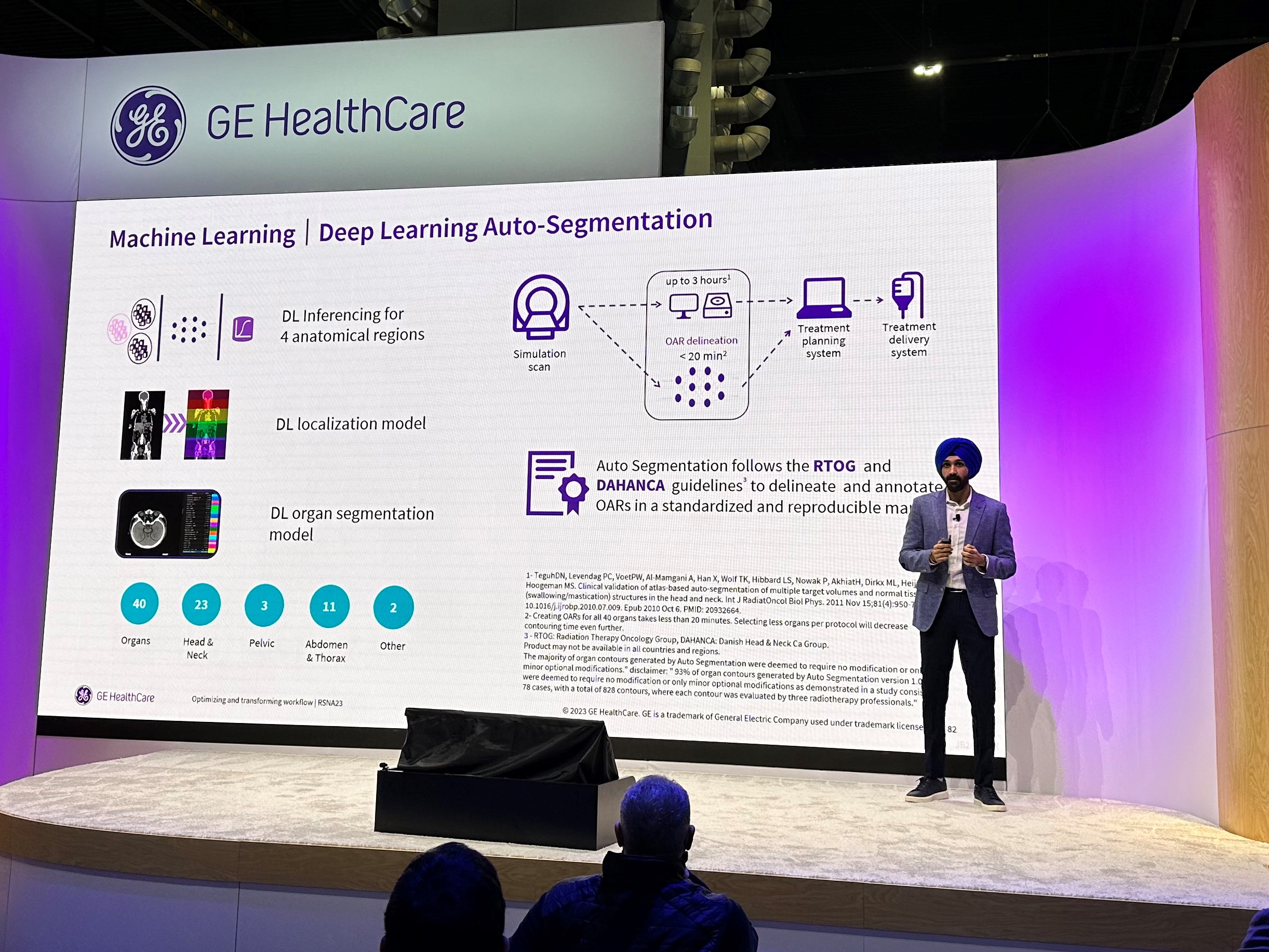By Parminder Bhatia, Chief AI Officer, GE HealthCare
Much of the business world is still adapting to the Fourth Industrial Revolution, an era that is characterized by a fusion of technologies that blur the lines between the physical, digital, and biological spheres. But GE HealthCare is on the frontlines helping to define and transform this era with innovative medical technology, intelligent devices, and care solutions that streamline healthcare delivery, and help clinicians improve patient care. Crucial to advancing our mission of transforming healthcare for the better is deep learning, a subset of artificial intelligence (AI) that works by replicating the processes of human learning.
Deep learning utilizes neural network models that mimic the complex patterns of human cognition trained to perform specific tasks such as predicting outcomes. In addition, deep learning models are trained to output a wealth of accurate, data-driven insights, with the purpose to enable a broad spectrum of clinicians to diagnose and care for patients with greater confidence, speed, and efficiency. The technology is revolutionizing the field of medical imaging, with its algorithms key to reducing the scan time of Magnetic Resonance Imaging (MRI) scans down to mere minutes; reducing motion artifacts and the need for rescans; and enabling faster scan times and impressive small lesion detectability.[1]
Deep learning is also pivotal to one of our primary objectives, which is making imaging accessible to healthcare practices and their patients across multiple care areas. For example, we recently received a grant from the Bill & Melinda Gates Foundation that will facilitate development of AI-assisted ultrasound applications and tools to enable healthcare professionals with less experience to perform more effective ultrasound scans to help address maternal and fetal health and respiratory diseases.
In recent years, hospitals and clinics have adopted a wide range of AI-enhanced solutions to support specific processes and tasks. For example, machine learning algorithms are helping radiologists detect breast cancers and aiding in breast image analysis
In fact, GE HealthCare sees an analogy between the human body and our deep learning approach. Just as different body parts and systems work together harmoniously, our approach intends to integrate various facets of AI. These layered technologies aim to build up a detailed picture or snapshot from mountains of data, thereby replicating the sophisticated workings of human anatomy. It has the potential to be a game-changer for image analysis.
The approach underpins our Effortless Recon DL portfolio of deep learning-enhanced imaging products, which include MRIs, molecular imaging (MI), and computed tomography (CT). Our deep learning image reconstruction algorithm, AIR™ Recon DL, significantly improves image quality by improving signal-to-noise ratios (SNR).This helps enable physicians to scan patients faster and diagnose confidently, which yields a significant boost in workflow efficiency and productivity. Patients benefit from shorter scan times, faster diagnoses, and an improved overall experience. To date, around 16 million patients have benefited from AIR™ Recon DL.[2]
The latest True Enhance DL[3] recently introduced at #RSNA2023 uses a dedicated Deep Neural Network (DNN) that’s designed to generate deep learning-based monochromatic-like images from single-energy X-ray. It is also designed to increase contrast resolution for confident diagnoses, especially for challenging oncology cases and other disease states.
These latest innovations are only just beginning to tap deep learning’s potential.
The current applications of AI in medicine primarily focus on specific defined tasks, utilizing a single data modality such as a computed tomography scan or an x-ray. In contrast, in the clinical field, healthcare professionals interact with various data sources and modalities to arrive at diagnostic conclusions, make prognostic evaluations, and create treatment plans. This process is dynamic, with ongoing data continually shaping clinical decisions over time.
Looking ahead, the emergence of multimodal medical AI presents as a significant factor to unlocking new possibilities in healthcare. As this emerging AI paradigm continues to evolve, GE HealthCare envisions a future where the technology permeates its portfolio of products and solutions.
The future provides so much possibility and we’re committed to expanding the boundaries of deep learning to help unleash the technology’s full potential and the impact and benefit to patients worldwide.
[1] Omni Legend 32 cm increases small lesion detectability 16% on average and up to 20%, as compared to Discovery MI 25 cm with matched scan time/injected dose, as demonstrated in phantom testing using a model observer with 4 mm lesions; average of different reconstruction methods.
[2] Calculated by IB data with estimation 20 scans per day, 5.5 working day in a week, fully start using AIR™ Recon DL 4 weeks after delivery, as of Oct 31st, 2023.
[3] True Enhance DL is 510(k)-pending with the U.S. FDA. Not available for sale in the United States.

